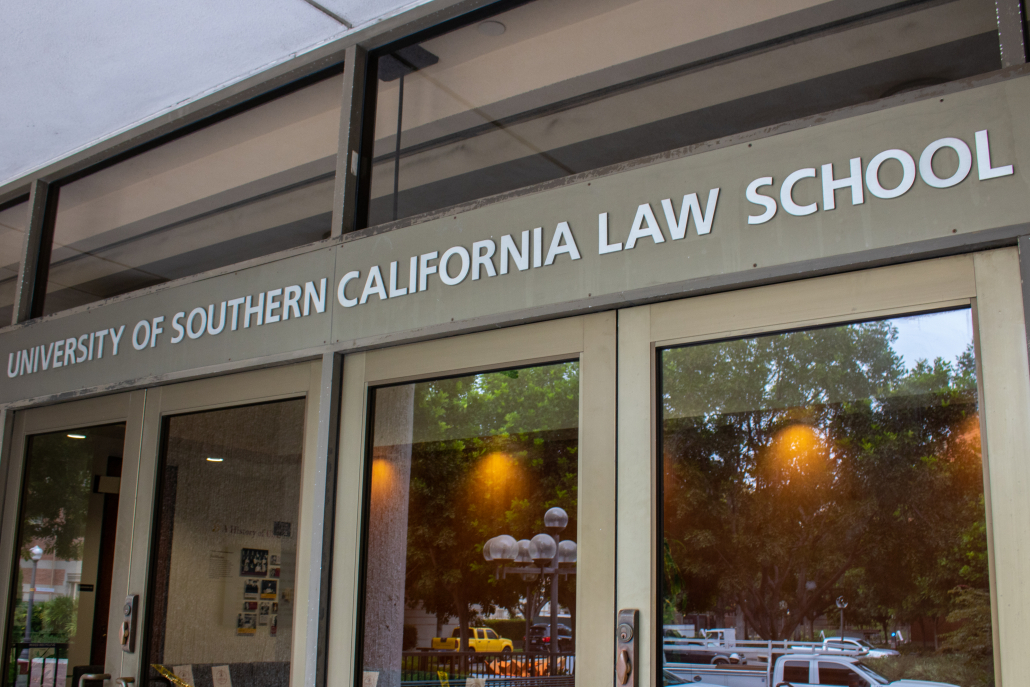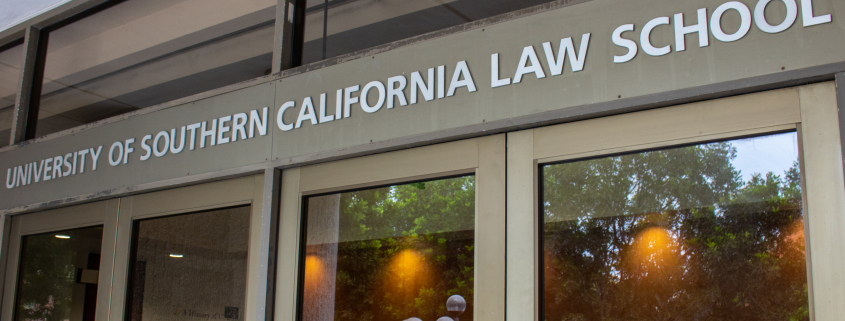Gould students launch small business legal research task force

At the outset of the coronavirus pandemic, Michael Chasalow saw small businesses in Los Angeles County struggle to navigate changing guidelines and regulations as they tried to reopen and keep their businesses afloat.
When Chasalow, a professor of clinical law and director of the Gould School of Law’s Small Business Clinic, received questions from these businesses, he developed the idea to create the Small Business Legal Research Task Force.
“Quarantine started slowly … and the rules that govern it weren’t entirely clear,” Chasalow said. “I became aware pretty quickly that businesses had small and big questions about how to navigate through this completely unprecedented time.”
With students losing internships because of the pandemic, Chasalow said many reached out to him for ways to help the community while bettering their research skills, and the task force presented the perfect opportunity.
From contractual obligations to directives on “price gouging,” the task force’s website provides nuanced answers to questions that small businesses are currently grappling with, and a separate form allows them to submit new questions that arise.
Chasalow further stated the importance of being responsive to the specific needs of small businesses.
“What we tried to do is take a smaller vision rather than a bigger vision,” Chasalow said. “It was a desire to answer the more basic questions facing the business, as opposed to the kind of the global issues that might face many businesses.”
Chasalow said local businesses have reached out to thank him for the help that the website provided them. With the changing local, county and state guidelines, Chasalow said it has been challenging to consistently update the website.
However, he said that to address some of the changes that have been made since the students last worked on the website, they’ll be updating the site in October and at various checkpoints as long as the pandemic persists.
The website went through multiple fact-checking rounds by student supervisors and Chasalow who reviewed the FAQ pages and the sample templates for letters to creditors and customers.
Elizabeth Bell, a second-year law student and another supervisor on the project, said the students also focused on simplifying language from state and local orders so that more people could understand it.
Compiling the pertinent legal ordinances and resources was challenging.
“When I was researching questions there were so many different sources and so much information out there, it’s hard to see what’s actually relevant,” Bell said.
Bell also credited her time with the task force to giving her a hands-on experience that taught her to write about issues and ordinances with language that her clients can understand.
Behind the scenes, the website also required technical work that enabled it to run efficiently. Ariel Jacoby, another second-year law student, used her experience working in digital marketing to help design the website and facilitate its workflow.
Jacoby said it was important for her to help small businesses that do not have resources to access legal advice, and she referred some of her friends who own businesses to the site as well.
“Small businesses don’t have a big firm on retainer that they’re able to go to with their legal questions,” Jacoby said. “This website is able to be that resource for business owners.”

